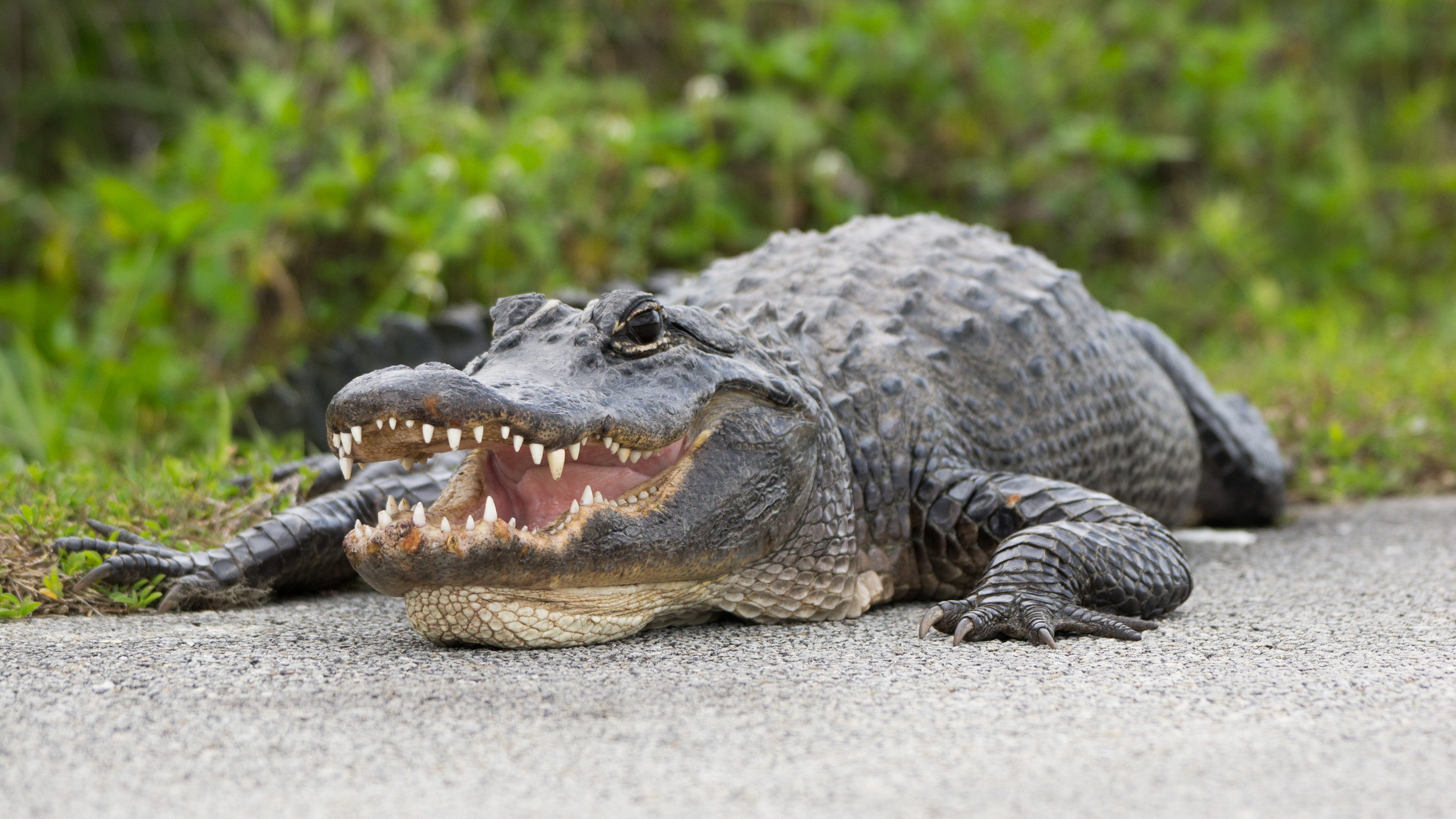Human remains found inside 500-pound alligator. How common are alligator attacks?
Such attacks are very rare, an expert told Live Science.

An enormous alligator is suspected of killing a man in Louisiana, according to news reports.
Officials from the U.S. Fish and Wildlife Service and the Louisiana Department of Wildlife and Fisheries recently captured the alligator around the neighborhood of Avery Estates, not far from where 71-year-old Timothy Satterlee Sr. went missing on Aug. 30, the St. Tammany Parish Sheriff's Office wrote on its Facebook page. The 12-foot-long (3.7 meters), 504-pound (229 kilograms) alligator had "what appears to be human remains inside its stomach," according to the post.
Satterlee's wife reported to the police that an alligator had attacked her husband outside their home in floodwaters from Hurricane Ida, according to The Charlotte Observer. She tried wrestling him from the alligator's grip and pulled him onto the front steps of their house, before leaving to look for help. But when she came back to the house, he was gone. The investigators will now work with the coroner's office to confirm the remains belong to Satterlee, according to the Facebook post.
How common are such tragic alligator attacks?
Related: Alligator alley: Pictures of monster reptiles
"People getting killed by alligators is extremely rare," said Adam Rosenblatt, an assistant professor of biology at the University of North Florida who studies how alligators respond to changing environments.
Between 1999 and 2019, alligators killed 10 people in the southeastern U.S., according to data from the Centers for Disease Control and Prevention. In that same time period and in the same area, nearly five times as many people were killed by dogs, and nearly 12 times as many people were killed by lightning, he said.
Sign up for the Live Science daily newsletter now
Get the world’s most fascinating discoveries delivered straight to your inbox.
"A lot of human-alligator conflict occurs when alligators get provoked, both intentionally and unintentionally, or when alligators go after people's pets," Rosenblatt told Live Science. When hungry, alligators might go after people, but those types of situations are "rarer," he said.
Worldwide, alligators are responsible for less than 6% of fatal attacks by animals in the group called crocodilians (which includes crocodiles, alligators, caimans and gharials), according to the University of Florida. Around 4% of alligator attacks on humans in the U.S. have led to death.
There's no evidence to suggest that alligators change their behaviors and actively hunt during hurricanes in Florida, according to the University of Florida. But they may show up in unexpected places due to widespread flooding after a hurricane.
Though rare, fatal alligator attacks do occur from time to time. People can limit their chances of such a conflict by not approaching alligators when they see them; walking pets at a distance from lakes and ponds; avoiding swimming in areas that are known to have alligators, especially at night; and never feeding them, Rosenblatt said.
Originally published on Live Science.

Yasemin is a staff writer at Live Science, covering health, neuroscience and biology. Her work has appeared in Scientific American, Science and the San Jose Mercury News. She has a bachelor's degree in biomedical engineering from the University of Connecticut and a graduate certificate in science communication from the University of California, Santa Cruz.










